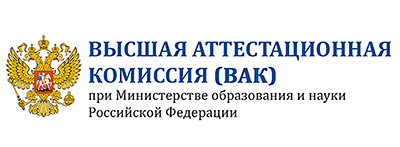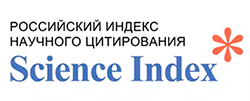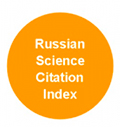Normative attitudes to family and gender: Russian-speakers in Latvia and Estonia in a comparative perspective (based on the 2018 surveys)
Abstract
The article presents the results of a comparative study of the level of traditionality/modernity of normative gender attitudes in the Russian-speaking population of Latvia and Estonia. The research hypothesis is that Russian-speakers hold an intermediate position between the relatively more traditional Russians and the relatively more modern non-Russian-speaking populations of Latvia and Estonia. To test the hypothesis, we used survey data of the 2008 wave of the European Values Study including seven indicators of family and gender attitudes. The results obtained proved Russian-speakers in Latvia and Estonia to hold more traditional views compared to the non-Russian-speaking population of these countries. At the same time, Russian-speakers in Latvia, as hypothesized, appeared to be more modern in their views than Russians. Russian-speakers in Estonia, however, were found to be similar to Russians in their views and much more traditional than Russian-speakers in Latvia, while non-Russian-speakers in Estonia, on the contrary, presented more modern views than their counterparts in Latvia. The results obtained confirm the theoretical proposition that social identity may affect even normative attitudes substantively unrelated to the criteria on which this identity is based and that this impact is mediated by the general level of traditionality/modernity ascribed to a culture by its representatives as actual and/or desirable. No differences in the power and direction of influence of sociodemographic variables were found across samples: in all the five groups, more traditional views are espoused primarily by older respondents and those legally married. At the same time, education and income levels were found to have no significant impact, and no significant differences between men and women and between first and second generation immigrants vs. not immigrants were discovered.
Downloads
References
Borinskaya S., R. Inglehart, J. Harro, A. Cotter, E. Ponarin, C. Welzel. (2014). Genetic factors, cultural predispositions, happiness and gender equality // Journal of Research in Gender Studies. 4(1): 32-100.
Çaglar A. (1997). Hyphenated identities and the limits of culture // The politics of multiculturalism in the New Europe / T. Modood, P. Werbner, eds. London: Zed Books: 169-185.
Cheskin A. (2015). Identity and integration of Russian speakers in the Baltic States: A framework for analysis // Ethnopolitics. 14(1): 72-93.
Ehin P. (2016). Identity and foreign policy: Baltic-Russian relations and European integration. London: Routledge. 216 p.
Fabrykant M.S., V.S. Magun. (2014). Semeynye tsennosti rossiyan i evropeytsev [Family values in Russians and Europeans] // Demoskop Weekly [Demoscope Weekly].613-614: 6-19. URL: http://www.demoscope.ru/weekly/2014/0613/demoscope613.pdf (accessed: 12.06.2018).
Freedman E. (2007). No turning back: The history of feminism and the future of women. NYC: Ballantine Books. 464 p.
Gill R. (2007). Postfeminist media culture Elements of a sensibility // European journal of cultural studies. 10(2): 147-166.
Inglehart R. (2018). Kul'turnaya evolyutsiya. Kak izmenyayutsya chelovecheskie motivatsii i kak eto menyaet mir [Cultural evolution. People’s motivations are changing, and reshaping the world]. Moscow: Mysl'. 334 p.
Ivlevs A. (2013). Minorities on the move? Assessing post-enlargement emigration intentions of Latvia’s Russian speaking minority // The Annals of Regional Science. 51(1): 33-52.
Kostenko V., P. Kuzmichev, E. Ponarin (2016). Attitudes towards gender equality and perception of democracy in the Arab World // Democratization. 23(5): 862-891.
Latvia Population 2018 (2018). World Population Review. URL: http://worldpopulationreview.com/countries/latvia-population (accessed: 01.06.2018).
Lesthaeghe R. (1995). The second demographic transition in Western countries: An interpretation // Gender and family change in industrialized countries. 17-62.
Magun V.S. (2009). Normativnye vzglyady na sem'yu u rossiyan i frantsuzov: traditsionnoe i sovremennoe [Normative views on family in Russians and the French: traditional and modern] // Roditeli i deti, muzhchiny i zhenshhiny v sem'e i obshhestve [Parents and children, men and women in family and society] / S.V. Zaharov, T.M. Maleva, O.V. Sinyavskaya, eds. Moscow: NISP: 477-516.
Population by ethnic nationality, 1 January, years (2017). Statistics Estonia: Tallinn. URL: http://www.stat.ee/34278 (accessed: 01.06.2018).
Rivera L.A., A. Tilcsik (2016). Class advantage, commitment penalty: The gendered effect of social class signals in an elite labor market // American Sociological Review. 81(6): 1097-1131.
Rudnev M.G. (2009). Vliyanie «russkoyazychnosti» na zhiznennye tsennosti [Impact of Russian-speaking on basic values]. // Sotsiologiya: metodologiya, metody i matematicheskoe modelirovanie (Sotsiologiya: 4M) [Sociology: methodology, methonds and mathematical modeling (Sociology: 4M)]. 28: 107-128.
Sakevich V.I. (2014). Otnoshenie k razvodam, vnebrachnym otnosheniyam, gomoseksualizmu, abortam, kontratseptsii v 40 stranakh mira [Attitudes towards divorce, extramarital rrelations, homosezuality, abortions, and contraception in 40 countries] // Demoskop Weekly [Demoskope Weekly]. 595–596. URL: http://demoscope.ru/weekly/2014/0595/reprod01.php (accessed: 08.05.2018).
Thornton A., L. Young‐DeMarco (2001). Four decades of trends in attitudes toward family issues in the United States: The 1960s through the 1990s // Journal of marriage and family. 63(4): 1009-1037.
Vihalemm T., A. Masso (2003). Identity dynamics of Russian-speakers of Estonia in the transition period // Journal of Baltic Studies. 34(1): 92-116.
Vishnevsky A.G. (2010). Serp i rubl'. Konservativnaya modernizatsiya v SSSR [Sickle and Rouble. Conservative modernization in the USSR] Moscow: Izd. dom Vysshey shkoly ekonomiki. 430 p.
Vishnevsky A.G. (2011). Tsivilizatsiya, kul'tura i demografiya [Civilization, culture and demography] // Obshhestvennye nauki i sovremennost' [Social sciences and modernity]. 2: 57-76.
Vishnevsky A.G., S.V. Zakharov, E.I. Ivanova (2006). Obnovlenie sem'i i braka [Rejuvenation of family and marriage] // Demograficheskaja modernizacija Rossii 1900-2000 [Russia’s demographic modernization, 1900-2000] / A. Vishnevsky, ed. Moscow: Novoe izd-vo: 66-146.






















